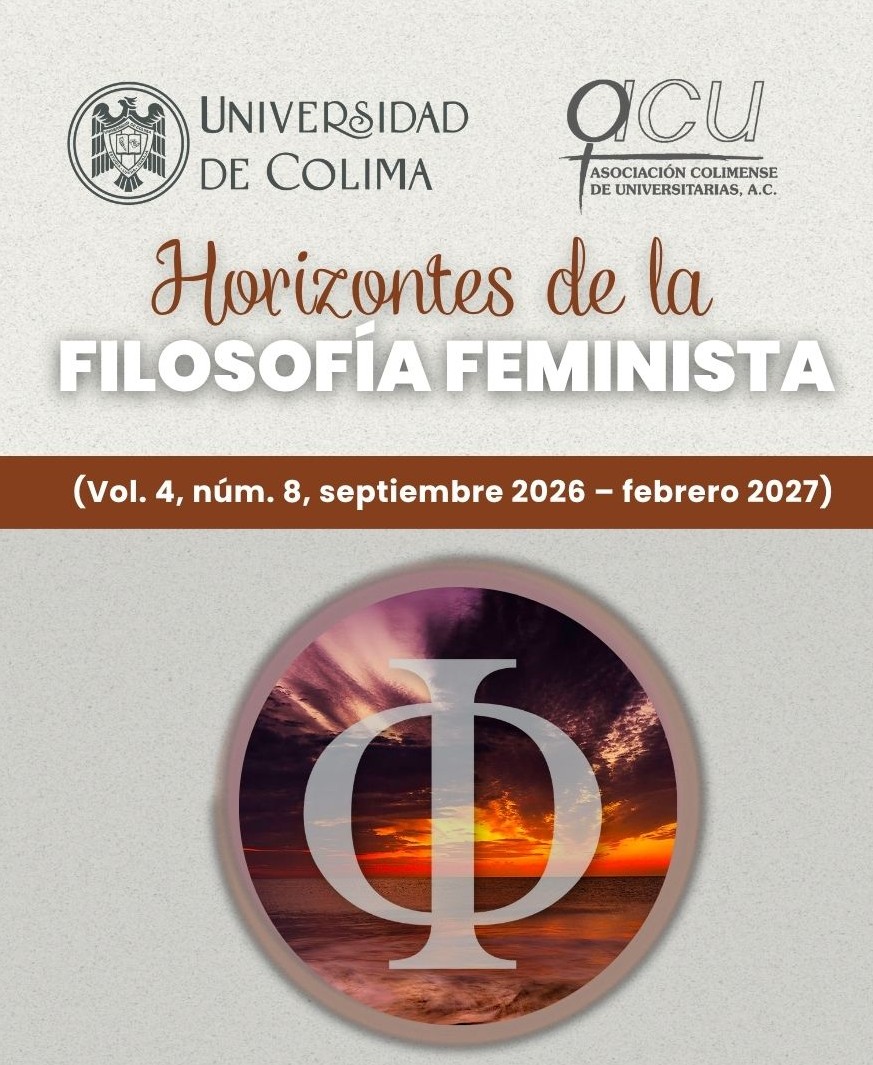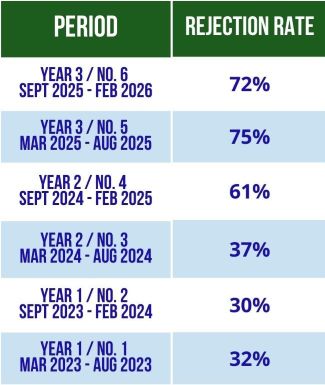Heterosexuality as a feminist object of study:
An historical journey
Keywords:
sexuality, feminism, sex roles, heterosexuality, heteronormativityAbstract
Gender studies on sexuality tend to focus on diversity. When heterosexuality is being referred to, it is usually treated as the norm, however, little is written about the historical past of heterosexuality as a pathology or as something socially undesirable. This article intends to follow the historical path of the term heterosexuality, its origin and the transformation of meaning, from pathology to norm, and from sexual practice to an identity. The different processes that the term went through until it became the hegemonic identity. In this sense, the text approaches this in a historical regard, before, during, and after its incursion into the feminine discourse. This work analyzes the way feminism, in particular the lesbian feminism led by Monique Wittig in the late seventies, was the first to problematize heterosexuality, emphasizing its political function and denouncing it as one of the primary
sources of oppression for women. Along with other female authors, she shows how heterosexuality, since it was established as a hemogenic identity, is rarely questioned
and, therefore, there is still an existing need to question its naturality in order to understand its influence as a hemogenic identity in the perpetuation of a patriarchal
system.
Downloads
Metrics
References
Burgos, E. (2013). El escándalo de lo humano: Lesbianas y mujeres. En: Suárez Briones, Beatriz (ed.), Las lesbianas (no) somos mujeres: En torno a Monique Wittig (pp. 51-84). Barcelona: Icaria.
Butler, J. ([1990] 2007). El género en disputa. Barcelona: Paidós.
De Beauvoir, S. ([1949] 2000). El segundo sexo. Vol. II La experiencia vivida. Madrid: Ediciones Cátedra.
Curiel, O. y Falquet, J. (2005). Introducción. En: O. Curiel y J. Falquet (coord.), El patriarcado al desnudo. Tres feministas materialistas francesas (pp. 1-18). Buenos Aires: Brecha Lésbica.
Ellis, H. ([1900] 2004). Studies in the Psychology of Sex. Vol. II, 3a ed. Estados Unidos: Project Gutenberg.
Friedan, B. ([1963] 2009). La mística de la feminidad. Madrid: Cátedra.
Fuentes, A. y Pineda, Y. (2018). Pensamiento y movimiento lésbico en México. En: Eva Alcántara y Hortensia Moreno (eds.), Conceptos clave en los estudios de género (pp. 215-231). Vol. 2. México: UNAM.
Guasch, O. (2007). La crisis de la heterosexualidad. 2ª ed. Barcelona: Laertes.
Guasch, O. y Viñuales, O. (2003). Sociedad, sexualidad y teoría social: La sexualidad en perspectiva sociológica. En: Oscar Guasch y Olga Viñuales (eds.), Sexualidades. Diversidad y control social (pp. 9-18). Barcelona: Bellaterra.
Hernández, A. (2014). Llámame lesbiana. En: Beatriz Suarez Briones (ed.), Feminismos lesbianos y queer: Representación, visibilidad y políticas (pp. 91-104). Madrid: Plaza y Valdés.
Hernández, A. (2019). Aquí y ahora: La noción de contrato social en el lesbianismo materialista de Monique Wittig. En: Investigaciones Feministas, 10(1), pp. 27-44. Madrid: Universidad Complutense.
Katz, J. ([1990] 2012). La invención de la heterosexualidad. J.L. Cisneros Trad. 2a edición. México: Ta Erotika.
López, S. (2003). La legitimación y reivindicación de las prácticas sexuales no normativas en la teoría queer. En: Oscar Guasch y Olga Viñuales (eds.), Sexualidades. Diversidad y control social (pp. 105-124). Barcelona: Bellaterra.
Radicalesbians ([1970] 2009). La mujer identificada con mujeres. En: Rafael Mérida (ed.), Manifiestos gay, lesbianos y queer: Testimonios de una lucha (1969-1994) (pp. 75-82). Barcelona: Icaria.
Rich, A. ([1980] 2001). Heterosexualidad obligatoria y existencia lesbiana. En: Sangre, pan y poesía. Prosa escogida. 1979-1985 (pp. 41-86). Barcelona: Icaria.
Rubin, G. (1989). Reflexionando sobre el sexo. Notas para una teoría radical de la sexualidad. En: Carole Vance (comp.), Placer y peligro. Explorando la sexualidad femenina (pp. 113-190). Madrid: Talasa Ediciones.
Saavedra, C. (2006). El informe Kinsey. En: Índice. Revista de Estadística y Sociedad, 15, pp. 20-23.
Suárez, B. (2006). Feminismos del siglo XXI. En: Lectora: revista de dones i textualitat (12), pp. 145-152.
Suárez, B. (2013). Cuando las lesbianas éramos mujeres. En: Beatriz Suárez Briones (ed.), Las lesbianas (no) somos mujeres: En torno a Monique Wittig (pp. 15-50). Barcelona: Icaro.
Suárez, B. (2014). Feministaslesbianasqueer. En: Beatriz Suárez Briones (ed.), Feminismos lesbianos y queer: Representación, visibilidad y políticas (pp. 17-36). Madrid: Plaza y Valdés.
Wittig, M. (2016a). No se nace mujer. En: J. Sáez y P. Vidarte (Trads.), El pensamiento heterosexual y otros ensayos (pp. 33-46). 3ª ed. Madrid: Egales.
Wittig, M. (2016b). El pensamiento heterosexual. En: J. Sáez y P. Vidarte (Trads.), El pensamiento heterosexual y otros ensayos (pp. 47-58). 3ª ed. Madrid: Egales.
Yébenes, Z. (2018). Heterosexualidad. En: Eva Alcántara y Hortensia Moreno (eds.), Conceptos clave en los estudios de género (pp. 123-135). Vol. II. México: CIEG-UNAM.
Referencias Web:
Burgos, E. y Hernández, A. (2009). El deseo lesbiano como potencia feminista. En: Coordinadora Feminista. Consultado el 20 de septiembre de 2019. Disponible en http://www.feministas.org/el-deseo-lesbiano-como-potencia.html
Gimeno, B. (2014). Hacia una agenda sexual (hetero)feminista. En: Pikara Online Magazine. Consultado el 15 de febrero de 2020. Disponible en https://www.pikaramagazine.com/2014/01/hacia-una-agenda-sexual-heterofeminista/
Downloads
Published
How to Cite
Issue
Section
License

This work is licensed under a Creative Commons Attribution-NonCommercial-ShareAlike 4.0 International License.
GénEroos Magazine allows you to share, copy and redistribute the material in any medium or format; adapt, remix, transform and build upon the material, crediting the work appropriately and providing a link to the licence, indicating if changes have been made.








